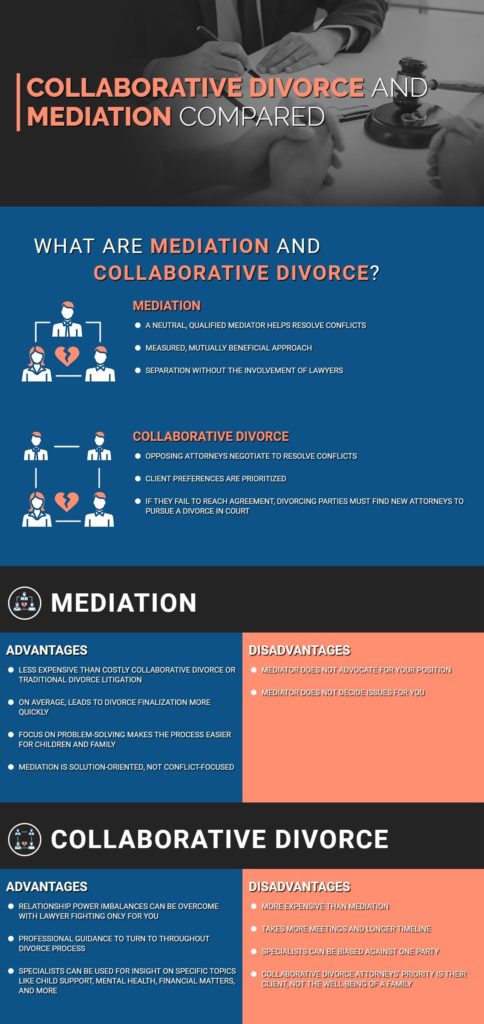
If you’re currently going through a divorce, you know how stressful it can be. In fact, the American Institute of Stress has rated divorce as one of the most stressful events an adult can experience. Because of this, it is important for you to know what you’re getting into and understand what type of divorce is right for your situation.
The infographic above gives a brief overview of the differences between a collaborative divorce and mediation, listing the pros and cons of each. Let’s briefly look at these types of divorce in a little more detail, so you can think about which type may be right for your situation.
In a divorce via mediation, the goal is to use a neutral third party (the mediator) to come up with an agreement that works well for both parties. This type of divorce has many advantages. First, it is a lot cheaper than both parties hiring a lawyer and potentially entering a court battle. Second, the goal of mediation is to make things as easy for the family as possible. This can eliminate some emotional turmoil and stress. Mediation is also generally a quicker process than a collaborative divorce, since there is less back and forth between the two parties.
While mediation may sound like it would work well for almost anyone, it isn’t always the best choice. With a collaborative divorce, you have an expert family lawyer advocating for your position, and in some cases, this is necessary. For example, if you are dealing with a high-conflict person, you may need a lawyer to advocate on your behalf, instead of trying to go through mediation with someone who simply won’t cooperate. Additionally, if you’re dealing with a high stakes situation, such as deciding on a child custody agreement or dividing up a significant amount of assets, you may need an expert to advocate on your behalf as well. Another benefit of collaborative divorce is that your lawyer can call in experts in fields like mental health, finance, child-support etc. to support your case if your divorce ends up in court.
There are pros and cons to both collaborative divorce and mediation, and ultimately, you will have to decide what is right for your situation. Mediation is a great option if you’re dealing with someone who can set aside their emotions and work with you, but you may need a collaborative divorce if you’re dealing with a high-conflict individual, or if there are significant assets or issues at stake.